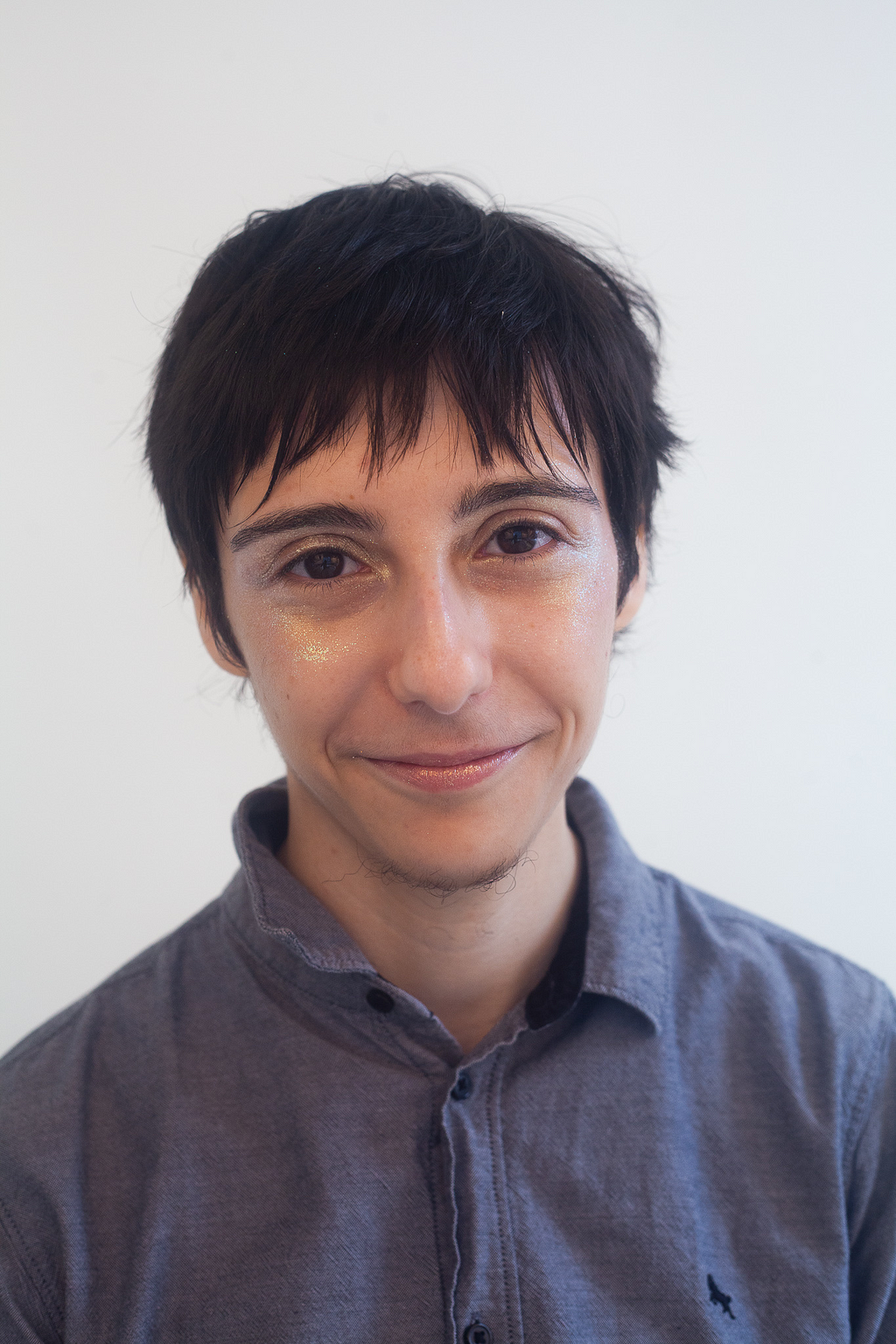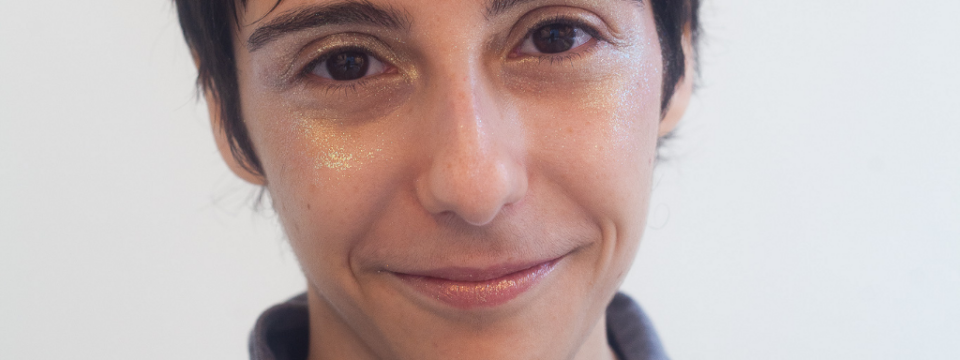Unstoppable: How Fantasy Author Ennis Rook Bashe Has Redefined Success While Navigating Society With a Disability

The most important thing I want to tell healthy people is “Please don’t panic when you learn about our symptoms.” Every so often, I casually mention something that’s normal for me, like “Hey, I black out if I stand up too fast, so give me a few minutes,” or “Be right back, I dislocated my shoulder and need to put it back in.” The shocked reactions that I tend to get from the abled are completely out of proportion. I’m not stressed out, so why are they panicking? Now I have to use the energy that I need to take care of myself to reassure the crowd of strangers.
As a part of our “Unstoppable” series, I had the pleasure of interviewing Ennis Rook Bashe.
Ennis Rook Bashe is a disabled non-binary poet and YA fantasy novelist from the New York area, whose writing centers around themes of hope and community. Their new book is A Scheme of Sorcery. Ennis has received a Rainbow Awards honorable mention and is a Lesfic Bard Awards winner. They are also the author of several queer romance/speculative fiction novellas. Their novella To Stand in The Light features a bisexual superheroine with ADHD, and Graveyard Sparrow centers on a lesbian psychic who uses witchcraft to help manage their social anxiety.
Thank you so much for doing this with us! It is really an honor. Our readers would love to get to know you a bit better. Can you share your “backstory” with us?
I am a queer, disabled novelist, poet, and cat dad who has recently released my first full-length novel, A Scheme of Sorcery. I drafted this book when I was very ill during college and unable to participate in most activities outside class. Since then, I’ve released multiple LGBT+ novellas, but I’ve always wanted to come back to this project. A Scheme of Sorcery is about two young women in a fantasy setting who hate each other- until they have to work together to save democracy from evil wizard extremists and end up falling in love.
Do you feel comfortable sharing with us the story surrounding how you became disabled or became ill? What mental shift did you make to not let that “stop you”?
I was born with Ehlers-Danlos syndrome, a genetic joint and organ disorder that affects the body’s ability to make collagen. There were some early signs during my childhood- my shoulders dislocated when my parents tried to pick me up, and I’d sometimes throw up or fall down for no reason, but I just attributed it to being a crybaby. Then one day during my undergraduate theatre program, my knees gave out when I tried to walk back from the cafeteria, and all the words in my textbooks were blurry. That was just the start of it: I couldn’t do yoga or dance anymore because my knees were too swollen, I lost the ability to write by hand, and I fell asleep almost anytime I sat down. It took a year of begging to see doctors before someone believed that I wasn’t just a whiny teenager and diagnosed me with Lyme disease. Of course, I didn’t have Lyme disease, so the high-dose antibiotic and antimalarial therapy did nothing.
While I was stuck in my room with the lights off and ice packs on my knees, most of my friends got bored of me and stopped answering my texts- they wanted the fun Ennis who wore a full face of makeup to an early morning class and brought free sangria to all the house parties, not someone who had emotional needs and made them think about human mortality. At first, I just lay in bed feeling sorry for myself, but eventually I realized I had enough energy to be bored. I resolved that that even if I was bored, I wasn’t going to let myself become boring. Maybe other people wanted my worth to be determined by how much I could drink or dance or gossip. So what? I didn’t need to listen to them. I wanted to find a way to keep being my creative, fun, awesome self.
Can you tell our readers about the accomplishments you have been able to make despite your disability or illness?
Lying in bed for most of my college years, only getting up for classes, gave me a lot of time to read and write. I’m so grateful for the responses to what I’ve been able to publish- novellas, poems, short stories, and even a full-length novel. People have reached out to me saying they felt seen and validated by the representation in my work. I’m just as delighted by the people who reviewed or left comments saying that my writing entertained them. I’m always honored to learn that I’ve told a story that’s good enough to make someone forget their troubles for a little while. Luckily, my health has improved enough that I can live independently, give or take a few home health aides, and I’m currently studying for my master’s degree in social work. I want to address the ways that people with disabilities and LGBT people, especially multiply marginalized population, are often neglected when it comes to mental health treatment.
What advice would you give to other people who have disabilities or limitations?
When I first experienced severe symptoms, I blamed myself for the way that healthy people treated me. Classmates made fun of me on anonymous apps for being clumsy, and I thought it was my fault for being disabled in public. I blamed myself when teachers refused to provide accommodations and when strangers crossed the street to ask why a young, attractive person like me was wearing knee braces. Over time and after meeting other people in the disabled community, I’ve realized that ableism, like any other type of discrimination, isn’t something anyone should blame themselves for. No one deserves to be discriminated against.
None of us are able to achieve success without some help along the way. Is there a particular person who you are grateful towards who helped get you to where you are?
In high school, I was accepted into the Alpha workshop for young science fiction, fantasy, and horror writers. That’s where I met one of my best friends, author Maya Chhabra. I think every author needs someone who they can message at odd hours to say, “MY BOOK IS HORRIBLE, I’M GOING TO THROW THE WHOLE THING DOWN THE GARBAGE DISPOSAL,” and get told “No, it’s actually decent, here’s why,” and Maya has been that person for me- A Scheme of Sorcery wouldn’t exist without her. She’s currently working on Chiara in the Dark, a novel for teens about a biracial girl struggling with what I would tentatively categorize as pure OCD or harm OCD. I think this is going to be such a valuable, groundbreaking book, and I’m so excited for it to reach young people who may be struggling.
How have you used your success to bring goodness to the world?
Honestly, when I first started publishing, the idea of influencing others never occurred to me. My volunteering and phone banking was the way I made a positive impact, and writing was just something I did automatically, a weird little habit slightly less inconvenient than biting my fingernails. Then I started getting reviews from strangers saying that they’d felt seen and represented in my work, an anonymous message saying that one of my novellas had helped the letter-writer leave an abusive relationship, and a blogger letting me know that the representation in another work had made them happy-cry on public transportation. Even though this didn’t happen overnight, I’m still pretty shocked at the response to my work.
Can you share “5 things I wish people understood or knew about people with physical limitations” and why.
The most important thing I want to tell healthy people is “Please don’t panic when you learn about our symptoms.” Every so often, I casually mention something that’s normal for me, like “Hey, I black out if I stand up too fast, so give me a few minutes,” or “Be right back, I dislocated my shoulder and need to put it back in.” The shocked reactions that I tend to get from the abled are completely out of proportion. I’m not stressed out, so why are they panicking? Now I have to use the energy that I need to take care of myself to reassure the crowd of strangers.
Panicking isn’t helpful, but you know what is? Asking the disabled people in your life how you can better accommodate them. Many disabled people have been disbelieved or even abandoned in the past when we disclosed what we needed to make something accessible. Let’s say you’re hosting a party- be proactive about making sure everyone can get into the building and have a seat at the table.
The third thing I want everyone to know is that it’s the disabled community. Not the special needs community, not the differently abled community, and not the “diff-ability” or “differently empowered” community, or whatever silly euphemism someone’s invented recently.
Which brings me to my fourth point: “disabled” isn’t a bad word. No one is going to tar and feather you for using it.
Finally, please don’t be weird about seeing a disabled person in the street. I hope one day I can go outside with my cane without a complete stranger asking inappropriate questions.
Can you please give us your favorite “Life Lesson Quote”?
My father, health influencer/rabbi/podcaster Gil Bashe- I got my multitasking ability from him — is always quoting ancient sages in everyday conversation. One quote that stands out to me is a saying, “You should keep one piece of paper in each pocket. One paper should read ‘I am nothing but dust and ashes,’ and the other should read ‘For my sake the world was created.’” The way I interpret this in my own life is “don’t let your ego get too big, but don’t let anyone tear you down either.”
We are very blessed that some of the biggest names in Business, VC funding, Sports, and Entertainment read this column. Is there a person in the world, or in the US whom you would love to have a private breakfast or lunch with, and why? He or she might just see this 🙂
I’ve been incredibly lucky in terms of my ability to connect with people I admire on social media- but my all-time favorite author, Tamsyn Muir, is no longer online after being the subject of some vicious, unjustified cyberbullying. Her work is so powerful in how it addresses themes of trauma, mental health, and grief through the lens of genre tropes, and I really admire how she’s continued to publish and speak out against censorship. Very brave, very badass, goth as all hell.
Thank you for these really excellent insights, and we greatly appreciate the time you spent with this. We wish you continued success.
Unstoppable: How Fantasy Author Ennis Rook Bashe Has Redefined Success While Navigating Society… was originally published in Authority Magazine on Medium, where people are continuing the conversation by highlighting and responding to this story.
